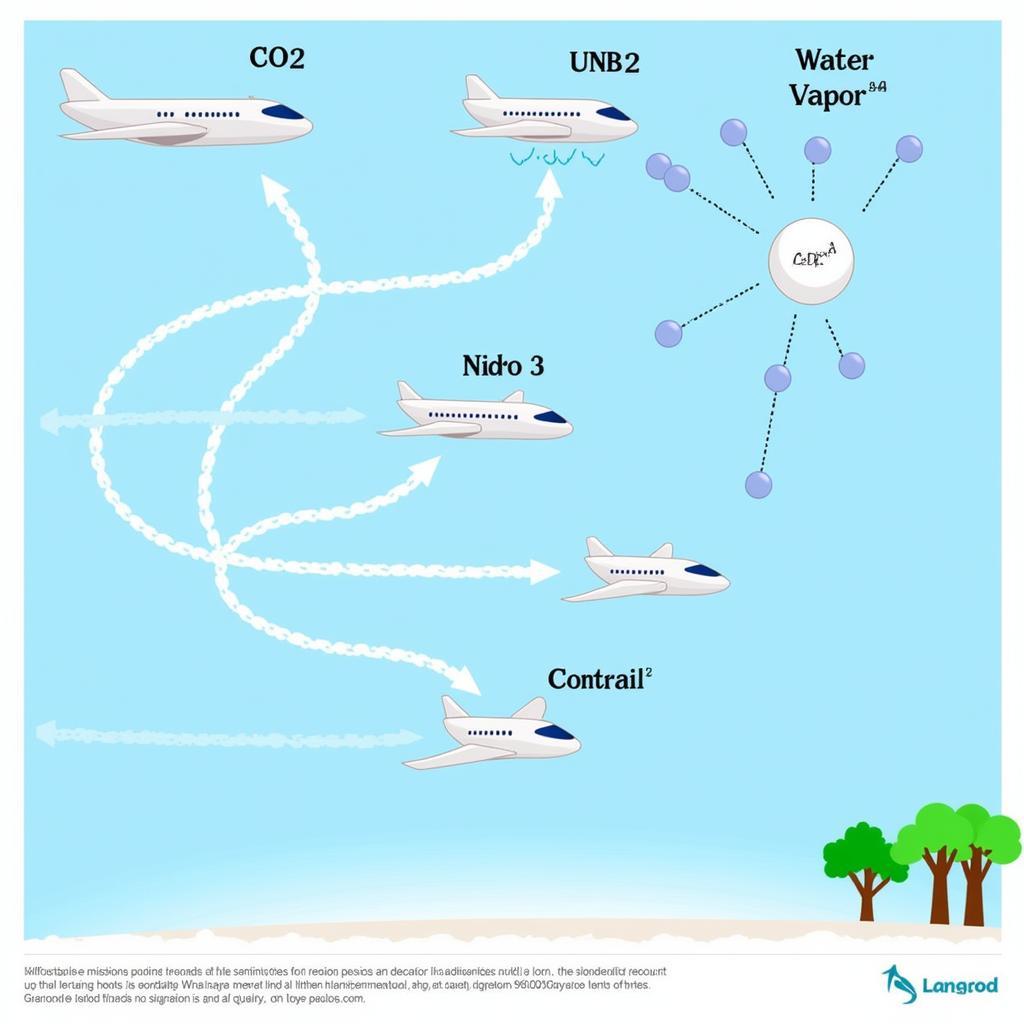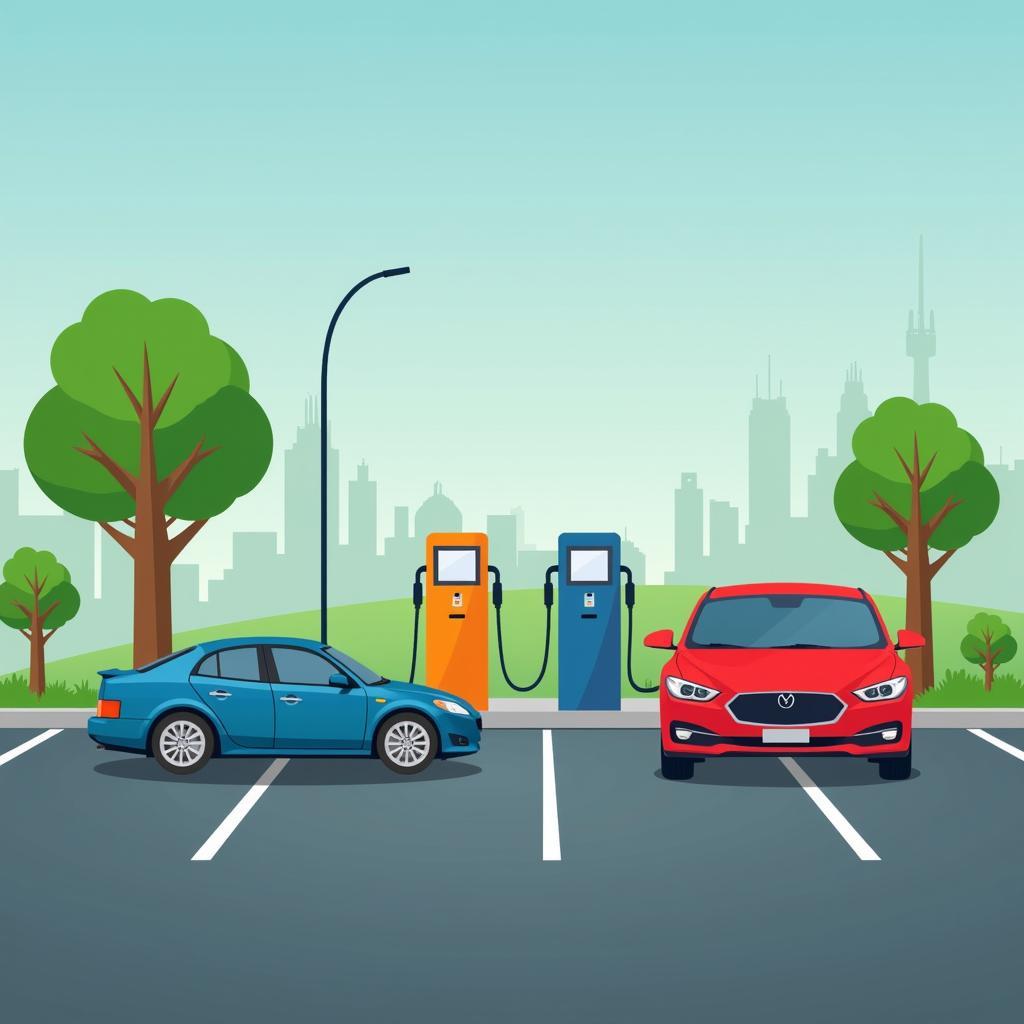When it comes to travel, the environment often takes a backseat to convenience and cost. But with growing concerns about climate change, many people are starting to question the environmental impact of their transportation choices. This leads to a common debate: are planes or cars worse for the planet?
Taking Flight: The Environmental Cost of Air Travel
Airplanes have earned a reputation for being big polluters, and for good reason. They burn massive amounts of fossil fuels, releasing carbon dioxide (CO2) and other greenhouse gases directly into the atmosphere. In fact, aviation is responsible for about 2.5% of global CO2 emissions.
The Altitude Factor
What makes airplane emissions particularly damaging is their altitude. Released at high altitudes, these emissions have a more potent warming effect on the planet compared to emissions released at ground level.
Beyond CO2: Other Impacts of Aviation
However, CO2 is only part of the story. Planes also produce other emissions like nitrogen oxides, water vapor, and contrails—those white streaks you see in the sky. While these emissions have a shorter lifespan, they contribute to the formation of ground-level ozone and trap heat in the atmosphere, further exacerbating climate change.
 Airplane Emissions
Airplane Emissions
Hitting the Road: Examining Car Emissions
Cars, on the other hand, are often seen as the more environmentally friendly option. After all, they’re smaller and carry fewer people. However, cars contribute significantly to global emissions, accounting for a substantial portion of transportation-related greenhouse gases.
Tailpipe Troubles: The Impact of Car Exhaust
The exhaust fumes from cars release a cocktail of harmful pollutants into the air we breathe, including carbon monoxide, nitrogen oxides, and particulate matter. These pollutants contribute to smog, respiratory problems, and other health issues, particularly in densely populated areas.
The Electric Car Revolution
The rise of electric vehicles (EVs) offers a glimmer of hope. EVs produce zero tailpipe emissions, making them a cleaner alternative to gasoline-powered cars. However, it’s important to remember that the electricity used to power EVs often comes from power plants that still rely on fossil fuels.
 Electric Car vs. Gasoline Car
Electric Car vs. Gasoline Car
The Verdict: So, Which Is Worse?
It’s not a simple answer. The environmental impact of planes versus cars depends on several factors, including the distance traveled, the number of passengers, and the type of car.
Here’s a simple breakdown:
- Short Distances: Cars typically produce more emissions per passenger per mile than planes on short trips.
- Long Distances: Planes become the bigger polluter on long-haul flights, especially when you consider the altitude factor.
- Full vs. Empty: A full plane with all seats occupied has a lower per-passenger environmental impact than a half-empty plane. Similarly, a car with multiple passengers is more eco-friendly than a single-occupancy vehicle.
Making Informed Choices: Reducing Your Travel Footprint
While the plane versus car debate continues, there are steps you can take to minimize your environmental impact when traveling:
- Choose Sustainable Transportation: Opt for public transportation, cycling, or walking whenever possible.
- Fly Less Frequently: Consider taking fewer, longer trips instead of multiple short flights.
- Offset Your Carbon Footprint: Invest in carbon offset programs to compensate for the emissions you can’t avoid.
- Support Sustainable Travel Companies: Choose airlines and car rental companies that prioritize sustainability initiatives.
By making conscious choices and adopting eco-friendly travel habits, you can contribute to a greener future. If you need help making travel choices that align with your values, don’t hesitate to reach out.
FAQ
1. Do electric planes exist?
Yes, electric airplanes are in development, but they are currently limited in range and payload capacity.
2. What are airlines doing to reduce their environmental impact?
Airlines are exploring sustainable aviation fuels, improving fuel efficiency, and investing in carbon offsetting programs.
3. Is it better to drive or fly a short distance?
For short distances, driving is usually the more polluting option per passenger. However, carpooling or taking the train can significantly reduce your footprint.
Need More Information?
For personalized travel advice and assistance in planning eco-friendly trips, contact us at:
- Phone: 0372999888
- Email: aibongda@gmail.com
- Address: 236 Cầu Giấy, Hà Nội
Our team of experts is available 24/7 to answer your questions and help you make sustainable travel choices.